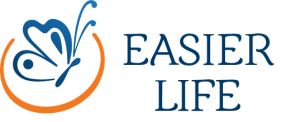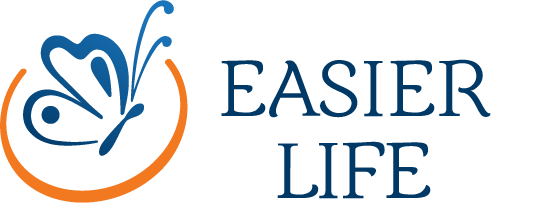- This provision equips individuals with leadership, project management, and team management skills, integrating Krishna-conscious principles and providing practical tools to foster personal and community growth.
- Learning Styles (VAK) - Visual, Auditory, Kinesthetic: Understanding different learning styles (visual, auditory, and kinesthetic) helps leaders tailor their communication and training methods to engage better and support their team members. This approach enhances team collaboration and individual contribution by aligning strategies with each member’s preferred learning style.
- 2 YouTube videos to watch.
- https://www.youtube.com/watch?v=qcCtPgzlGTs
- https://www.youtube.com/watch?v=_IopcOwfsoU
- Free Assessment For Adults (10 minutes)
- https://trainingcoursematerial.com/free-assessment-tools/vak-learning-styles-questionnaire
- Free Assessments For Children (Reading Time 20 minutes - x 6 Assessments, you can do some or all)
- https://www.lovetoknow.com/parenting/kids/learning-style-test-children
- Provides resources on different learning styles, helping parents understand whether their child learns best through visual, auditory, or kinesthetic methods. This guidance includes tips on tailoring educational activities and spiritual teachings to suit individual learning preferences, making learning more engaging and effective for young children.
- Personality Profile Assessments (DISC): DISC assessments help children as potential leaders and teams understand personality dynamics within the group. By recognizing each team member's core traits and decision-making approaches, leaders can foster empathy, improve communication, and promote effective collaboration, ensuring that projects run smoothly and efficiently.
- Introduces age-appropriate DISC personality assessments to help children and their parents better understand core personality traits. Parents and educators can tailor learning environments and communication styles to suit the child's personality by recognising whether a child is more Dominant, Influential, Steady, or Conscientious. This approach fosters a more supportive and nurturing development, helping children build self-awareness, emotional intelligence, and positive social relationships from a young age.
- Personality Profile Assessments (DISC):
- https://www.surroundedbyidiots.com/en/disc-analysis Disc For Adults
- https://discpersonalitytesting.com/free-disc-test
- Disc For Adults (20 minutes)
- https://peoplesmartacademy.com/home-page/kids-disc
- Disc For Kids (20 minutes)
- Leadership Training and Development: Provides leadership training based on Krishna-conscious principles. Workshops emphasize cultivating humility, integrity, and emotional intelligence in leadership roles. This training helps leaders maintain a balanced focus on spiritual growth and project objectives, fostering an environment where devotees can thrive.
- Project Management: Offers practical tools and techniques to manage projects effectively, from planning to execution and evaluation. This includes time management, delegation, and goal-setting guidance, ensuring that projects are completed on time while aligning with the community’s devotional values. Leaders are encouraged to take on appropriate service levels according to their capacity to minimize stress and maintain balance with personal and family responsibilities.
- Team Management and Support: Provides practical guidance on managing teams, focusing on fostering cooperation, trust, and respect. Leaders learn skills for effective communication, conflict resolution, and delegation. Emphasis is placed on creating a supportive environment that respects each individual’s contributions while ensuring the team remains cohesive and motivated.
- Valuing Each Other in Teams: Encourages a culture of mutual respect and appreciation, recognizing the importance of every team member's contributions. Leaders are trained to build a culture of gratitude and service, reinforcing that each devotee plays a critical role in the project's success.
- Integrity and Transparency: Emphasizes the importance of integrity in leadership, mainly regarding financial management, budgeting, and auditing. Leaders are trained to manage project resources responsibly, ensuring that funds are used appropriately and aligned with legal and spiritual guidelines. This promotes transparency and prevents the misuse of resources, fostering trust within the community.
- Managing Resistance and Change: Helps leaders and team members manage resistance to change and navigate transitions within personal, team, or organizational contexts. Krishna-conscious principles of acceptance, adaptability, and resilience are applied to ensure that changes are embraced with grace and that harmony is maintained throughout the process.
- Minimizing Stress and Availability: Leaders are encouraged to take on service levels that align with their capacity, prioritizing their availability for their teams and personal relationships. This helps prevent burnout and ensures that leadership roles do not compromise family life or personal well-being.
3 Examples - Leadership, Project, Team Management, Training & Support
Example 1: Leadership Training and Emotional Intelligence Development
Offer:
I provide Krishna-conscious leadership training, emphasizing emotional intelligence and humility.
Details:- Teach leaders to recognize and manage emotions in themselves and others to foster collaboration.
- Facilitate workshops on humility and integrity as foundational leadership qualities.
- Provide personalized coaching for aspiring leaders to develop confidence and ethical decision-making.
Availability:
Weekends or weekday evenings for 1–2 hours.
Credentials:
Certified leadership coach with expertise in Krishna-conscious principles. References available.
Example 2: Practical Project Management Support
Offer:
I assist with project management, helping teams plan and execute tasks efficiently.
Details:- Guide leaders in creating timelines, setting milestones, and delegating tasks.
- Provide tools for managing resources, including budgeting and progress tracking.
- Offer strategies for ensuring team alignment with spiritual and organizational goals.
Availability:
Available for consultation on project setup or ongoing management via virtual or in-person meetings.
Credentials:
Professional project management experience with a focus on community and devotional projects.
Example 3: Team Building and Conflict Resolution Workshops
Offer:
I conduct interactive workshops to help teams build trust, resolve conflicts, and foster a cooperative spirit.
Details:- Use DISC personality assessments to help team members understand their roles and communication styles.
- Teach conflict resolution strategies grounded in Krishna-conscious values of empathy and respect.
- Facilitate team-building exercises to promote collaboration and appreciation for individual contributions.
Availability:
Monthly workshops or customized sessions for specific teams or projects.
Credentials:
Certified in conflict resolution and team-building methodologies with experience working in devotional communities.
These examples integrate Krishna-conscious principles with practical leadership and team management tools, ensuring balanced and effective support for individual and community growth.
VAK and DISC Examples - Leadership, Project, Team Management, Training & Support
VAK (Visual, Auditory, Kinesthetic) Examples
1. Leadership Training Using VAK:
- Visual: Create flowcharts and infographics to outline leadership strategies, such as project timelines or team roles. Use visual aids to explain conflict resolution techniques.
- Auditory: Host discussions and Q&A sessions to share leadership insights. Provide audio recordings of workshops for leaders to revisit key concepts.
- Kinesthetic: Use role-playing activities to practice conflict resolution or decision-making. Encourage leaders to physically map their team’s workflow using whiteboards or sticky notes.
2. Project Management Using VAK:
- Visual: Develop project plans with Gantt charts and color-coded task lists to track progress visually.
- Auditory: Hold regular team check-ins to discuss updates and challenges. Use verbal walkthroughs to explain project expectations and milestones.
- Kinesthetic: Incorporate interactive tools like physical task boards or tactile planning kits for brainstorming and delegation exercises.
3. Team Building Using VAK:
- Visual: Use presentations and videos to demonstrate effective teamwork techniques, such as shared responsibilities and delegation.
- Auditory: Facilitate team discussions on strengths and weaknesses, encouraging members to verbalize their contributions.
- Kinesthetic: Organize hands-on activities, such as building a physical model, to foster collaboration and trust.
DISC (Dominance, Influence, Steadiness, Conscientiousness) Examples
1. Leadership Development Using DISC:
- Dominance (D): Help leaders focus on goal-setting and decision-making. Teach them to delegate tasks while balancing assertiveness with team collaboration.
- Influence (I): Encourage leaders to use charisma to inspire and motivate their team. Focus on improving communication to build trust and alignment.
- Steadiness (S): Support leaders in maintaining harmony within the team, emphasizing empathy and patience in their interactions.
- Conscientiousness (C): Train leaders to prioritize detail-oriented planning, ensuring projects are completed efficiently and accurately.
2. Conflict Resolution Using DISC:
- Dominance (D): Teach direct individuals to manage conflicts with diplomacy, focusing on outcomes rather than control.
- Influence (I): Guide socially driven individuals to facilitate open dialogue and mediate disputes effectively.
- Steadiness (S): Help calm and supportive individuals act as mediators, encouraging harmony and mutual understanding.
- Conscientiousness (C): Support analytical individuals in identifying root causes of conflict and presenting logical solutions.
3. Team Management Using DISC:
- Dominance (D): Assign assertive members to roles requiring leadership and decision-making.
- Influence (I): Place socially oriented individuals in roles involving networking, communication, or team morale.
- Steadiness (S): Assign supportive members to maintain continuity and team cohesion.
- Conscientiousness (C): Engage detail-focused individuals in roles requiring precision and adherence to guidelines.
These VAK and DISC examples offer tailored approaches to leadership, project management, and team collaboration, aligning individual strengths with Krishna-conscious principles for community growth and personal development.


